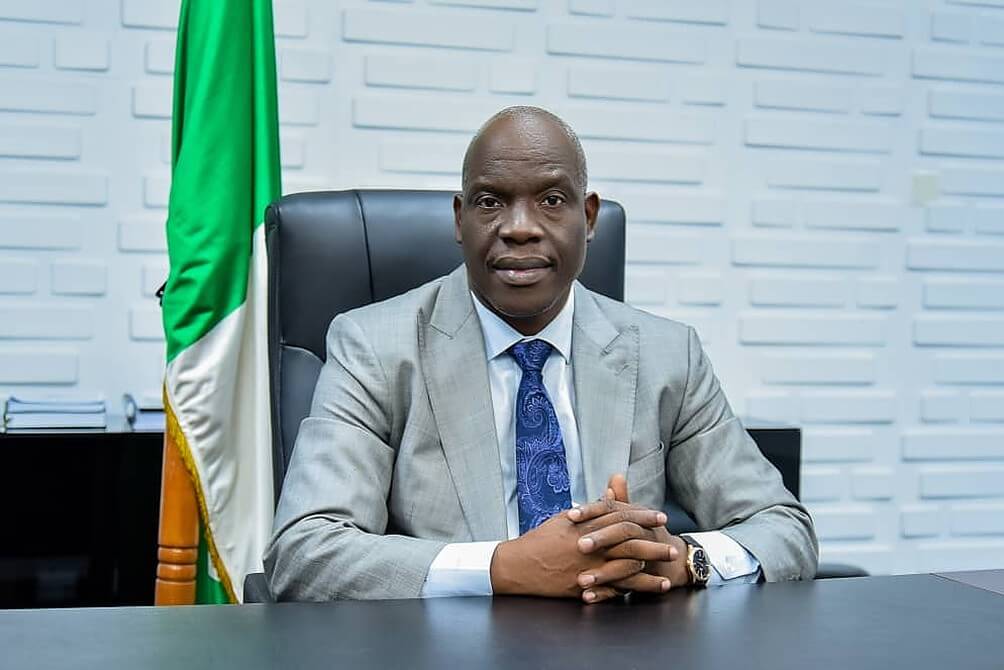NUPRC Lists New Investment Opportunities In Nigeria’s Gas Sector As Reserves Soars To 208.8 Trillion Cubic Feet
Nigeria’s gas reserves have risen to 208.8 trillion Cubic Feet according to the Nigerian Upstream Petroleum Regulatory Commission (NUPRC).
The Chief Executive Officer of the NUPRC, Engr. Gbenga Komolafe made the disclosure on Thursday while wooing investors at the 6th edition of the Nigeria International Energy Summit (NIES) themed “Global Perspectives for a Sustainable Energy Future.”
Advertisement
According to Komolafe, as of January 2023, Nigeria’s crude oil and condensate reserves slightly dropped to 31.060 billion barrels for oil and 5.906 billion barrels for condensate.
He said, “Our efforts are beginning to manifest in our gas reserves position, and we expect similar manifestations in oil reserves in the very short term. It is, therefore, my pleasure to declare the National Hydrocarbon Reserves Position as at January 1, 2023 at this important forum as follows: Nigeria’s oil and condensate reserves as at January 1, 2023 stands at 31.060 Billion Barrels for Oil and 5.906 Billion Barrels for Condensate, making a total of 36.966 Billion Barrels for oil and condensate while the Associated Gas reserves is 102.32 Trillion Cubic Feet, Non-Associated Gas reserves is 106.51 Trillion Cubic Feet, making the total of 208.83 Trillion Cubic Feet of Natural Gas reserves.
“The oil and condensate reserves decline of about 0.22% compared to January 01, 2022, figures is attributable to low exploration activities and reserves revision arising from subsurface studies in year 2022. On the other hand, the slight increase of 0.10% in gas reserves over January 1, 2022 reserves position is primarily attributed to the revisions arising from additional information from new wells, and field development studies.”
Komolafe however said in the years preceding the enactment of the Petroleum Industry Act (2021), investments in the Nigerian oil and gas industry declined due to regulatory uncertainty in addition to de-funding of fossil fuel development occasioned by energy transition and COVID-19.
Advertisement
He said “Most of the IOCs deprioritized Nigeria in their portfolios leading to the redirection of CAPEX to other countries and the attendant dwindling investment in Nigeria’s upstream sector. For instance, the Nigeria’s total annual upstream capital expenditure decreased by 74% from $27 billion in the year 2014 to less than $6 billion in 2022.
“This under-investment is also reflected in the country rig count. On average, Nigeria had 17 active oil rigs in 2019 representing one of the highest counts on the African continent as at then. Nigeria’s average rig count declined to 11 in 2020, 7 in 2021, 10 in 2022, but recently grew to 24 in April 2023, a positive signal of new investments trickling into the country.
“This is also a reflection of investors’ acceptance of the effective implementation of the PIA by the regulator.”
The NUPRC boss said the outlook over the next few years is positive, noting that there was the need to leverage the opportunity by doing all that is necessary to attract more investments and revive the Nigerian upstream sector.
But he acknowledged that as governments race to stay on track with net zero emissions by 2050, investment in clean energy has risen by 31 per cent.
Advertisement
According to him, it poses threat in investment in fossil fuels.
Komolafe said as a regulator, the NUPRC has embarked on the development of a regulatory framework for carbon-pricing systems to make businesses pay for their emissions and incentivize emission reductions through carbon credits.
Speaking on the incentives for investors, he said NUPRC has continuously encouraged investors to leverage on the generous fiscal incentives in the PIA.
He listed the incentives to include: zero hydrocarbon tax, reduced royalty rates based on production and across terrains, tax consolidation provisions amongst others and take final investment decisions on their proposed upstream projects.
On the investment opportunities in the sector, the NUPRC boss said “the PIA provides for approval of only projects with gas utilization plan in the upstream sector. The Commission is already enforcing this statutory provision in a manner to attract the multiplier economic benefits to the Nigerian economy.
“We have intensified our efforts towards eliminating flared gas while arresting methane and other fugitive gas emissions. The significance of this is that more gas would be available for domestic utilization as Liquefied Petroleum Gas (LPG), feedstock for power generation plants, fertilizer plants and petrochemicals to mention but a few. Each of these areas provide a unique entry point for willing investors and opportunities to build capacity locally.
Advertisement
“With the attractive fiscal, legal and regulatory provisions in the PIA, vast opportunities for investment abound for investors to leverage. Some of these opportunities include the development of deeper hydrocarbon opportunities, conversion of producing marginal fields to Production Mining Leases (PMLs) and clear definitions for domestic supply and delivery of crude oil and gas respectively to create potential for a robust domestic market to mention just a few. In addition, the NUPRC is deliberate in implementing strategic actions and initiatives aimed at increasing national crude oil and gas reserves and production.
“In this regard, the Commission will in the weeks ahead organise its Maiden Nigerian Upstream International Investment and Financial Roadshow (NUIIFR) for Petroleum Prospecting Licence (PPL) Awardees, NGFCP Bidders, and potential investors in the upcoming Mini Bid for Deep Water Assets, to explore funding opportunities and leverage capabilities of industry players, prospective Investors (local and offshore) to de-risk the assets and awards.
“The event will provide opportunity for participants to network, exchange ideas and chart strategic pathways to enhance investment opportunities.”



